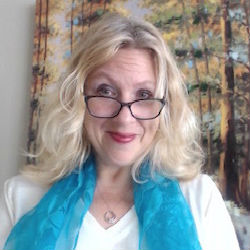
Tara Orchard, MA, is the principal consultant and founder of a career coaching business [Career-Coach Canada]. A social networking expert, she has been a featured writer/expert for two online business magazines.
She offers a full range of career transition and performance coaching services: career assessment, brand identification, resume writing, job search and interview training and career performance coaching.
What led you to write resumes? Do you have a background that made you an ideal fit for the industry?
Tara: Many years ago, not that long after completing my Master’s degree in psychology, I had the opportunity to work as an employment/job program coordinator.
It was a recession when I graduated and I had worked a diverse array of jobs to put myself through school and earn a living after graduation.
While running the employment/job preparation program, I found I was skilled at gaining insights into what people could do and who they were and aligning that careers.
I also had a knack for writing and describing people well. And, it turned out the resumes I would write were very successful.
2. How long have you been in the industry? Would you recommend it to others? Why?
Tara: I have been in the career/employment and business coaching industry for over 20 years.
Working independently and, in my case from home, has the benefit of being flexible and interesting.
As a single parent of two children, the flexibility is highly valuable, but the uncertainty and constant hustle can at times be stressful.
To succeed, I think you need to enjoy the challenge of having to constantly learn and adapt.
As with any self-employed professional, it can be difficult to take vacations or time off because that means you are not bringing in any income.
But it is important to do so.
I attend all my children’s extra-curricular events, drive them to practices, take them on outings, meet with their teachers and more, which sometimes means working on the weekend or at night to ensure the work is done and the children remain on the top of the priority list.
I would recommend this industry to people who enjoy a constant challenge and don’t mind uncertainty.
They also need to be comfortable constantly networking and remaining visible if they want to build their resume businesses.
3. What is the single best tool you recommend for building client relations? Building your business? Improve efficiency?
Tara: I use a number of tools for building client relationships.
However, I have found social networks, especially LinkedIn, are useful tools to gather information and connections that enable the building of client relations.
I also highly recommend building processes into your work so you can be efficient in the tasks that take time, especially the ones you don’t like.
I also use an electronic calendar to schedule everything, including booking time with myself to accomplish specific tasks.
4. If you could share one learning experience/great lesson, what would it be?
Tara: The greatest lesson I learned involves managing client relationships and getting paid and valuing your own time and abilities.
Some clients will waste your time asking questions that amount to getting free advice or they want deep discounts.
I set my rates and stick to them.
I stick to my time.
I get paid at least half up front.
5. Looking back, what would you have done differently? Done the same?
Tara: Being very practical, looking back I would have taken more time and effort to build and focus my website and develop my processes including communication, services and cost details from the outset.
What I would have done the same is to be a good community member within my profession and my actual community.
I was very active in sharing information and ideas with colleagues, joining professional associations and volunteering to present at local organizations.
6. What advice would you give someone just entering the resume-writing industry?
Tara: Constantly build your knowledge and network, stay ahead of the trends and find a good mentor group or association.
7. How do you see our industry transforming over the next 12 months? 5 years? What do you think resume writers need to know in order to survive?
Tara: With technology changes, there will be a greater need for resume writers to be able to understand and leverage technology as part of their resume writing craft.
We have moved away from biographical resumes to storytelling resumes and expanded resumes to include ATS friendly and designer resumes, portfolio resumes, bio’s, personal websites, social and LinkedIn profiles, and video resumes.
I recently was trying to figure out how to use a Chat Bot as a resume (which I am just learning about now, painfully slowly).
As Microsoft rolls out their new “Resume Assistant” that connects with LinkedIn information it will be interesting to see how that impacts resume writers in the short term.
